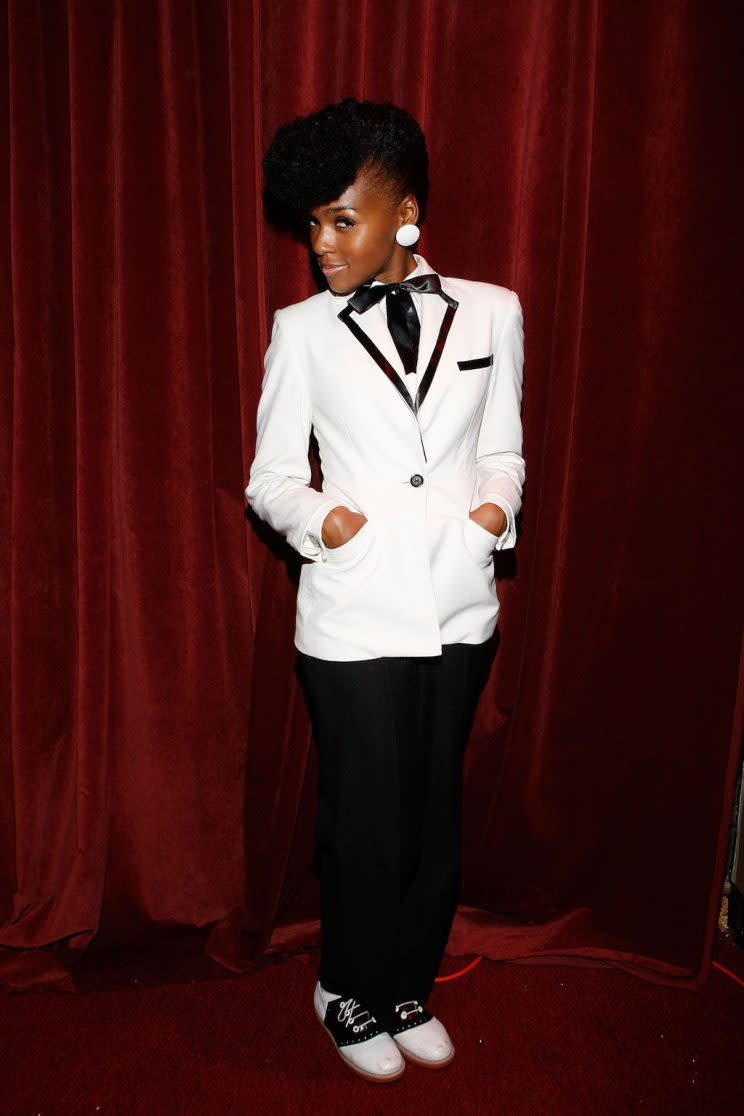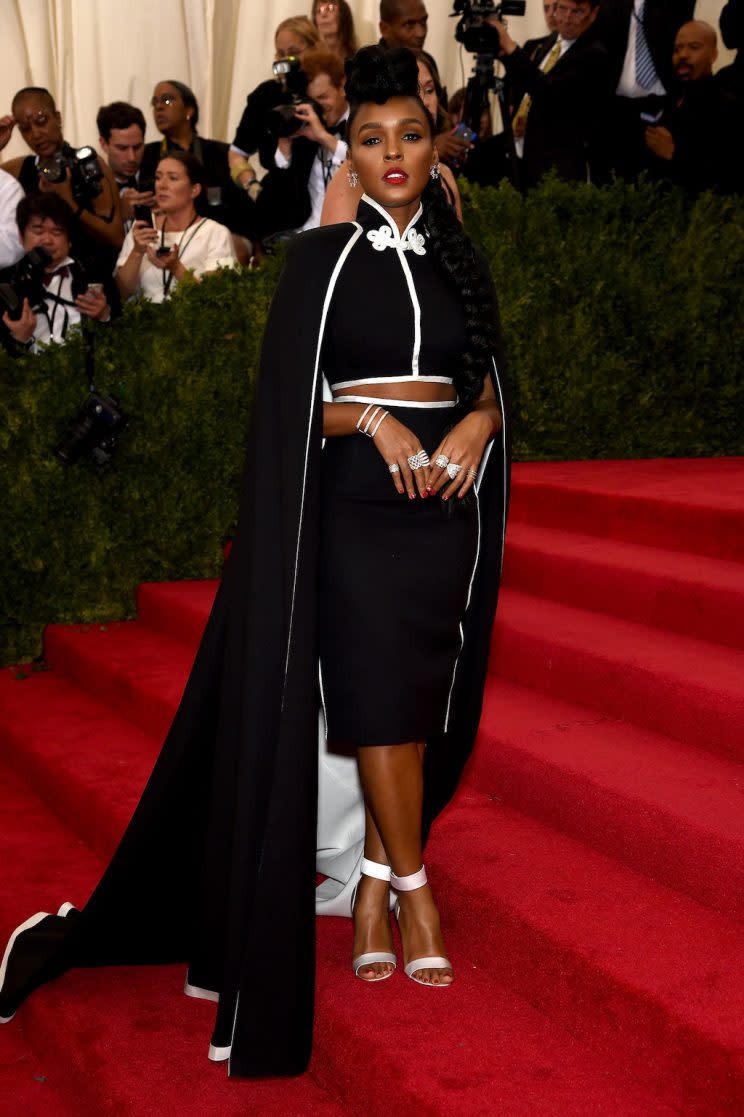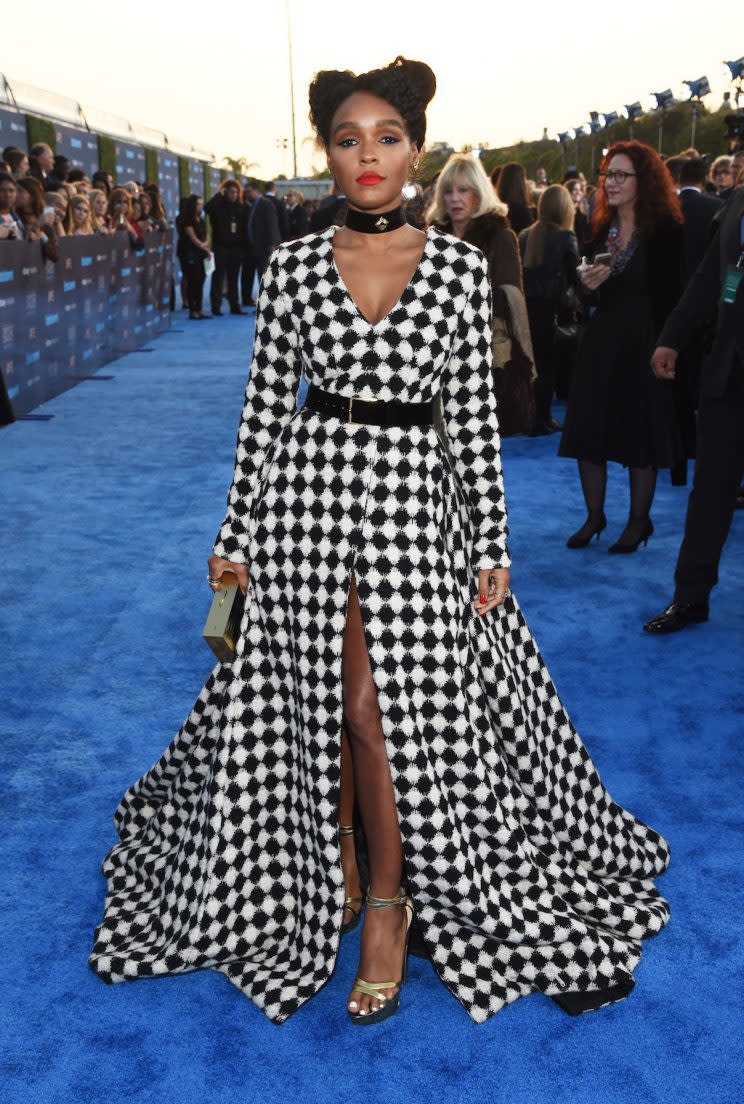Musician and Actress Janelle Monáe on Why She Doesn’t Dress to Please Men

Janelle Monáe was recently asked on social media about her fashion inspiration. Her response, pointed and succinct: “Stop dressing for boys.”
The musician and actress, who’s in two major awards contenders this season, is a fan of tuxedoes, her look very specific and very much her own.
“Once you realize that you’re not for male consumption — this is not to assume that every woman who gets up and puts on clothes thinks about pleasing a man — I think there are lot of us who don’t,” Monáe, 31, tells Yahoo Style. “Mentally, once you use that as your model and you redefine what sexy is and you don’t feel the pressure to appeal to the male gaze, you free yourself up to explore so many styles. If you want to be nude or fully clothed, we should all have ownership of our bodies. Women should be in control of that.”
Her confidence and self-awareness are intoxicating. She knows what she wants, she stands by her beliefs, and she’s focused and thoughtful in her answers. But, says Monáe, it’s a work in progress. She was born in Kansas City, Kan., to working-class parents, and studied drama in New York City. It took her a minute to find her footing, to decide to embrace what made her unique.

“I have not always been like this. I’ve been in my share of uncomfortable positions — there are certain stylists or people within the industry who adhere to a certain ideology about fashion and being a woman that I didn’t agree with. I’ve had to say no to a lot of things. You just can’t be afraid to say no. I wear black and white all the time. If I want to wear a tuxedo every day — not having that freedom to speak up and dress comfortably, that doesn’t sit well with me. I had those conversations early on,” she says.
Monáe takes her work seriously. It’s why she’s playing NASA aerospace engineer Mary Jackson in Hidden Figures, opposite Octavia Spencer and Taraji P. Henson. The film explores the contributions of African-American women to space exploration: Project Mercury and the 1969 Apollo 11 flight to the moon.
“I feel so thankful and so honored to be part of something bigger than myself. I’m a part of two families that are touching people’s hearts and bringing people together. To me it’s so important especially during this time to have stories that help us empathize with each other. They celebrate the other. They celebrate the person who oftentimes is discriminated against. We all bleed the same color,” says Monáe.
When she did her homework and learned about the real Mary Jackson, Monáe saw herself reflected in the Hampton Institute graduate.
“I see tenacity, perseverance, fight. Mary Jackson and myself — we represent a part of a young generation of young people who are not going to sit back idly and allow anyone to discriminate against us because of gender and race. We believe our dreams are valid. She’s funny. I saw a lot of myself in her. She’s one of those women who had such a broad worldview and saw the great in everyone. And so do I,” says Monáe.

Her other drama — and what she refers to as her other “family — is the universally beloved coming-of-age story Moonlight, which is pretty much on every critics’ year-end list of best films. Monáe was moved to tears when she read the script.
“It touched my heart. Finally we’re going to have a film that shows us as complete human beings. My character, Teresa, was like a surrogate mom to this young boy trying to find himself,” she says.
She has her own production company and wants to continue developing projects that matter to her. But up next for the multiple Grammy nominee: a return to her musical roots.
“I’m excited about storytelling. I would want to continue to tell unique, untold stories in unforgettable ways. I know that I will be putting out music. Doing these films has inspired me immensely. I took a break from working on my album that I was working on for four years. Music next year, I’m itching to get music out,” she says.
